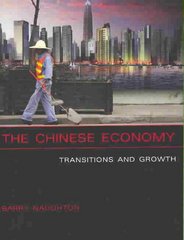Question
Think Like a Winner (Ep. 363 - January 16, 2019) By Freakonomics (57:14 minutes) January 16,2019 by Stephen J. Dubner Great athletes aren't just great
Think Like a Winner (Ep. 363 - January 16, 2019)
By
Freakonomics
(57:14 minutes)
January 16,2019
by Stephen J. Dubner
Great athletes aren't just great at the physical stuff. They've also learned how to handle pressure, overcome fear, and stay focused. Here's the good news: you don't have to be an athlete to use what they know. (Ep. 4 of "The Hidden Side of Sports" series.)
To listen use this link:
https://one.npr.org/?sharedMediaId=686112247:686112249
For Transcripts use this link:
http://freakonomics.com/podcast/think-like-a-winner/
Directions: Copy the link and paste it into a browser, if need be. Please, type your answers in a different color and submit your assignment by its due date. Late submissions may be penalized or may not be accepted at all. The questions center on how to think like a winner. The advice is based on scientific success afforded to the world's top athletes. I recommend you listen to the podcast, and perhaps read the transcripts if you're visually oriented.
1. Is there scientific support for the so-called "hot-streak?" If not, then why does the sports industry claim there's such a thing as the hot-hand theory? (J.J. Redick explains.)
Answer:
2.What is a mental game plan, and why is developing a mental game plan important for consistent success or consistent performance?
Answer:
3. Tewksbury says confidence is a choice. What does he mean by this statement?
Answer:
4. Tewksbury claims one of the most important components of the mental game is self-talk. Give an example of self-talk you want to use for whichever purpose you need.
Answer:
5. Gould teaches part of mental prep is visualization. What does he mean by this statement?
Answer:
6. Levitt voices predictability costs sports teams their wins. Does the same apply to companies when it comes to maintaining a competitive edge?
Answer:
7. Levitt and Kovash also looked at a game-theory question in baseball. They advocate slower balls, more often, for teams who wish to win more often. Why don't team managers actually listen? What does this disconnect between the data and behavior suggest?
Answer:
8. Is self-diagnosing in the moment important, according to McCarthy? Can you apply the same concept of enhanced success for those able to diagnose themselves on the spot, like when it comes to relationships or other challenges in life?
Answer:
9. What truly separates top competitors from one another?
Answer:
Step by Step Solution
There are 3 Steps involved in it
Step: 1

Get Instant Access to Expert-Tailored Solutions
See step-by-step solutions with expert insights and AI powered tools for academic success
Step: 2

Step: 3

Ace Your Homework with AI
Get the answers you need in no time with our AI-driven, step-by-step assistance
Get Started


